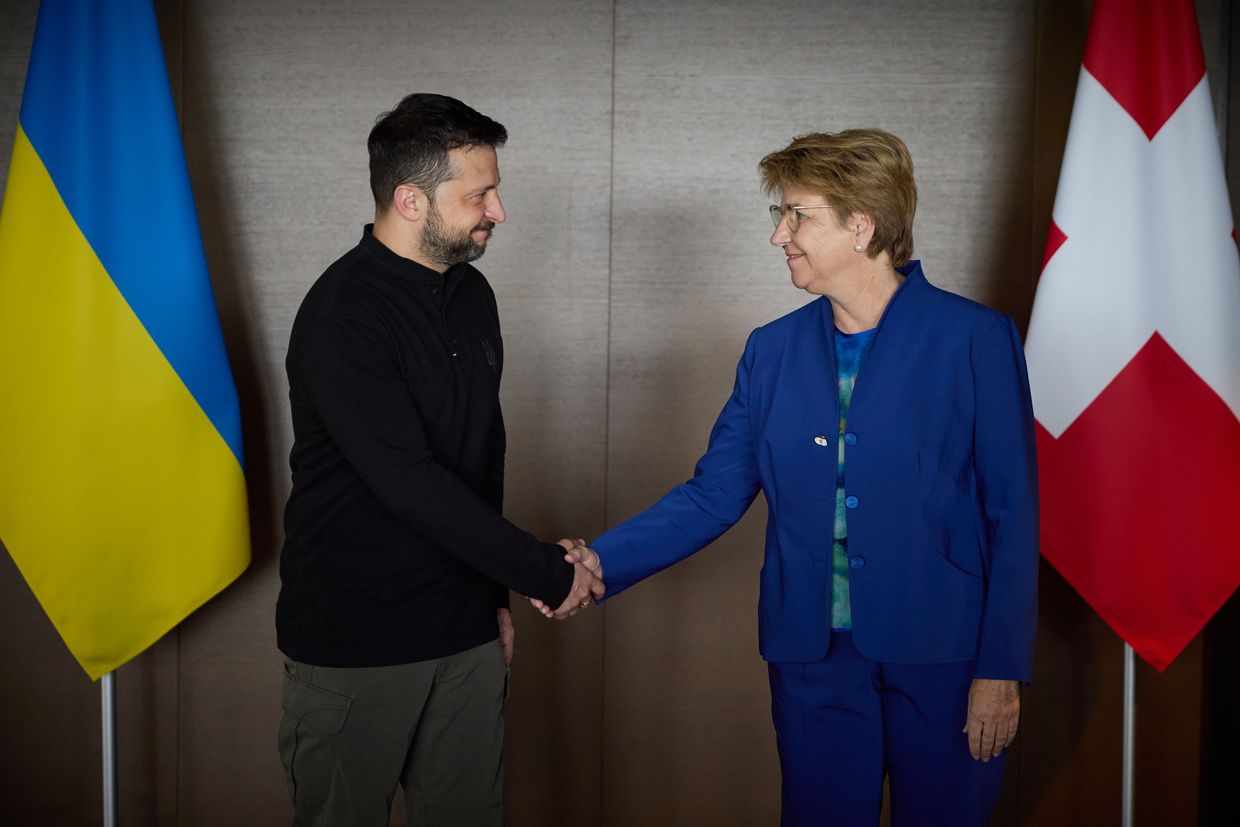NYT publishes purported draft of Ukraine-Russia peace treaty from 2022

The New York Times (NYT) on June 15 published for the first time a purported draft of a Ukraine-Russia peace treaty from early 2022 that was never signed.
Moscow and Kyiv held unsuccessful talks in Belarus and Turkey in the early months of the full-scale war, and no subsequent direct negotiations have been led since then.
The news comes as Switzerland is hosting a global peace summit for Ukraine, gathering close to 100 countries but excluding Russia. The participants hope to draft a joint peace plan they could present to a Russian representative at the next meeting.
The Wall Street Journal reported on the content of the unpublished 2022 peace terms already back in March, but the NYT published the 17-page draft in full, which it verified with participants in the talks.
Both sides agreed to exclude Crimea from the treaty, leaving it under Russian occupation without Ukraine recognizing Russian sovereignty over it.
The status of Russian-occupied territories of Ukraine was to be decided in later talks between President Volodymyr Zelensky and Russian President Vladimir Putin.
Ukraine offered to abandon aspirations to join NATO or any other military alliance, but the treaty allowed Kyiv to enter the EU.
Russia also demanded the lifting of all sanctions, repealing Kyiv's laws related to language and national identity, and limiting Ukraine's Armed Forces.
Ukrainian negotiators agreed to this in principle but called for higher caps than those proposed by Russia. U.S. and Polish officials were reportedly alarmed at these terms, with one senior American official calling it "unilateral disarmament."
The NYT said that the most important sticking point was connected to security guarantees under which powers like the U.K., the U.S., China, and France would come to Ukraine's defense if it were attacked.
Russian representatives reportedly demanded veto power on these guarantees, meaning they could block international intervention if Moscow itself decided to invade again.
With this demand, the Ukrainian team "had no interest in continuing the talks," one Ukrainian official told the NYT.
The NYT's sources said that some of Russia's maximalist demands from the first phase of the talks were gradually dropped as Ukraine managed to turn the tide on the battlefield.
Even after a Ukrainian counteroffensive pushed Russia from Kyiv Oblast and uncovered the site of massacres of civilians in Bucha, Zelensky said the talks would go on.
According to the outlet, it remains unclear whether Putin, who was "micromanaging" the Russian negotiating team, was serious about the treaty.
"We couldn't tell, on either side of the fence, whether these people who were talking were empowered," a former senior U.S. official told the outlet.












